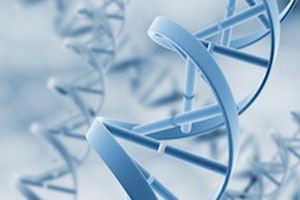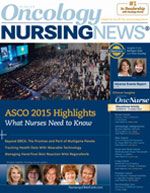Beyond BRCA: The Promise-and Peril-of Multigene Panel Testing
The abundance of new genetic tests, while beneficial in many ways, also has limitations.

The explosion in genetic testing options is undoubtedly helping individuals with a family history of cancer to clarify their risk, yet these advancements are also yielding a lot of genetic information for which there are not yet any actionable medical management guidelines.
This ever-changing genetic landscape can be baffling and worrisome for patients, explained Jill Stopfer, MS, CGC, in her talk at the annual meeting of the group, Facing Our Risk of Hereditary Cancer Empowered (FORCE), held in Philadelphia June 19-20, 2015.
“There are a lot of new testing opportunities and a lot of new genes out there that can be looked at—some we know a fair amount about, and some we know almost nothing about”—a situation which Stopfer deemed emblematic of both the “promise and the peril of genetic testing.”
Stopfer, a senior genetic counselor, cautioned that the abundance of new genetic tests, while beneficial in many ways, also has limitations.
Benefits
- May identify source of cancer in the individual’s family and help their relatives to better understand their risk
- May help clinicians make specific medical recommendations to protect the patient’s health
- More may be learned about the individual’s results in the future that may better enable them to take control of their health.
- It’s more economical to test for multiple genes at once.
Limitations
- Not all mutations can be found.
- A mutation may be found in a gene that is not well understood.
- There may be a finding in a gene the lab doesn’t know how to classify, also known as a variant of uncertain significance.
- The test may find a mutation in a gene inconsistent with an individual’s personal or family history.
- There may not be a clear way to care for a person based on the results.
Evaluating Genetic Cancer Risk
Medical guidelines exist for treating individuals with a pathogenic mutation in a high-risk gene like BRCA 1/2, which is associated with a higher risk of breast, ovarian, prostate, and pancreatic cancer, as well as melanoma. Stopfer noted that the new panels can be very helpful in stratifying risk for an individual who is positive for BRCA 1/2 even further:
“Increasingly, we are learning that the specific position of the mutation within the gene is sometimes related to differences in risk. We also think that in families, there are other genes that interact with this powerful gene—we call these genes ‘modifier genes’—that can dial the risk up or dial it down … yet even for the BRCA genes that are so well characterized, there is still more work to be done.”
Other pathogenic mutations may be found in moderate-risk genes, Stopfer explained, for which the cancer risk, and, importantly, any medical management, is unclear. Each of these genes may increase risk, but less dramatically, and it may require a set of genes, or genetic profile, to significantly raise an individual’s cancer risk.
“When the risk for cancer is only a little bit higher than the average person, what’s appropriate? We’re still debating and wrestling with these questions as more and more moderate-risk genes are being identified,” said Stopfer.
Finally, pathogenic mutations may been found in a newly characterized gene for which cancer risks and medical management are unknown, and these variants of uncertain significance (VUS) are especially prevalent in newer genes.
“There are many genes that labs will happily test you for that we know almost nothing about. We can’t tell you what cancers are associated … we can’t tell you what the magnitude of the risk is. We can’t tell you what’s recommended for people who carry mutations in this gene, because it’s unknown.”
And, Stopfer added, “most of these variants of uncertain significance will go away and be reclassified as nothing more than normal difference between people … I tell everyone to expect variants of uncertain significance. Just expect them.”
The growth in panel testing makes the need for genetic counseling even greater to maximize informed decision making: “Pretest genetic counseling is a must,” stressed Stopfer. When patients find VUS or other possibly concerning findings after a multigene panel, they’ll likely wonder: “now, what?” It can be challenging for genetic counselors and other oncology professionals to offer the right guidance.
“We may find a gene that is inconsistent with [a patient’s] personal family history,” said Stopfer. “There may not be a clear-cut way to care for an individual with these results,” which can also make them anxious and worried; some may even face scrutiny from other family members as to why they pursued the testing in the first place.
“The bottom line is that all of this needs to be tailored to the individual,” Stopfer continued: “Do you want this test? What are you going to do with this information? What choices are you going to make?
“For some people, even if we don’t know a lot about the gene that has been identified, it’s a placeholder. It’s something to follow and pay attention to, to follow the literature and learn more about as more research comes out,” she continued. “Some people like that: ‘It’s okay if we don’t know everything right now. I would like to know as much as possible, and we’ll just follow it.’”
Stopfer also cautioned against the overestimation of risk, especially as more discoveries emerge from the genetic research pipeline. This can be due to multiple factors, among them, that negative studies are not published as frequently. Another problem which she described as the “winner’s curse,” occurs when initial excitement over findings indicating a possible genetic link may overestimate the actual risk. There is also the issue of bias in sample ascertainment, because gene studies often involve highly affected families:
“Risk estimates from highly selected families may not reflect average risks for all comers,” added Stopher, who reminded her audience that in general, genetic risk for cancer remains “overall, pretty rare.”
“The truth is, for a lot of people with cancer, it is due to something called multifactorial inheritance. Cancer is a complex endpoint. There are a lot of ways the cells are no longer behaving the way they should be,” including genetics, environment, lifestyle, and, “very importantly, random cell errors.”
Collaborative Research
Looking ahead, Stopfer is hopeful that the already intense research interest in genetic cancer risk will shed light on at least some of the current quandaries to help genetic counselors and oncology professionals better understand any cancer risk implications of these discoveries.
One effort to do just that is the Prospective Registry of Multiplex Testing (PROMPT), a national research registry under the auspices of the Abramson, Dana-Farber, and Memorial Sloan Kettering Cancer Centers and the Mayo Clinic for people who have had multiplex testing and have at least one mutation or VUS in a gene other than BRCA1 or BRCA2. Patients self-enroll through an easy-to-use, secure web portal (www.promptstudy.info).
“More studies are always needed to replicate what someone has found,” said Stopfer. “It has to happen over and over again before you feel comfortable with the finding.
“As we saw with the story of BRCA, we do know a lot about what to do, what helps, what interventions make sense, and that’s because of research … we really need to pool this information quickly.”

Innovative Program Reduces Nurse Turnover and Fosters Development
Published: September 12th 2024 | Updated: September 12th 2024The US Oncology Network (The Network) has developed one of the most comprehensive programs in the nation to support the professional development and retention of new oncology nurses.


